About OneVetMed
Some readers may ask, “why the name onevetmed?” for this site. I chose this name because of the confusion over terms regarding medicine and the various approaches to patient care. We commonly hear terms such as: ‘conventional’ and ‘complimentary’; ‘traditional’ and ‘alternative’; ‘western’ and ‘eastern’; ‘allopathic’ and ‘holistic’. These terms can be confusing – and polarizing. There is frequently a tension between practitioners using methods deemed to be ‘scientific’ and those which are seen as ‘unscientific’ or ‘unproven’. I have been asked by clients if I am a “homeopathic” veterinarian, a “holistic” veterinarian, or if I practice “eastern” medicine. I have heard colleagues discussing how they sold their ‘traditional’ practices and how they now have “holistic” practices. The implication is that in order to be holistic, a veterinarian must give up pharmaceuticals in his or her practice because they are not ‘natural’ or ‘holistic’.
The practice of medicine can be likened to a craftsman using the various tools in a tool box. From the patient’s perspective, he or she would hope that the doctor has more than just a hammer in the box. As the old saying goes, if the only tool you have is a hammer, then everything looks like a nail! The hammer-wielding doctor will treat every patient with the same tool. So, if the only tool in the box is a prescription pad, then everyone is treated with pharmaceuticals – a drug is deemed to be the answer to every problem. I want to be clear that I am not against using drugs when they are indicated. We are all very fortunate to live in a time with so many technical advances and discoveries in medicine and health. And while these modern advances can, at times, do ‘miracles’, we should not “throw the baby out with the bath water” in terms of discarding non-pharmaceutical treatments.
I believe that the ideal philosophy of veterinary medicine is one medicine – a genuinely holistic approach that uses all the available tools to improve outcome for the patient. The doctor should consider the unique characteristics of each patient, such as biochemical/genetic individuality, environment, history, physical examination and clinical signs, and results of diagnostic tests. Then, the patient should be given the full benefit of modern technical advances in pharmaceuticals when appropriate, along with more ‘natural’ therapies where indicated. I use the term ‘natural’ in the context of potentially less invasive or having less potential for serious adverse effects. When therapies such as herbal medicine, animal chiropractic, acupuncture, laser therapy, massage, and targeted nutritional supplementation are included to treat the patient, and not just the disease, then truly ‘holistic’ care can be achieved.
The purpose of this site is provide integrative pet health information, illustrations of integrative care using case examples from my practice, and my commentary on current events related to veterinary medicine, medicine, and health.
